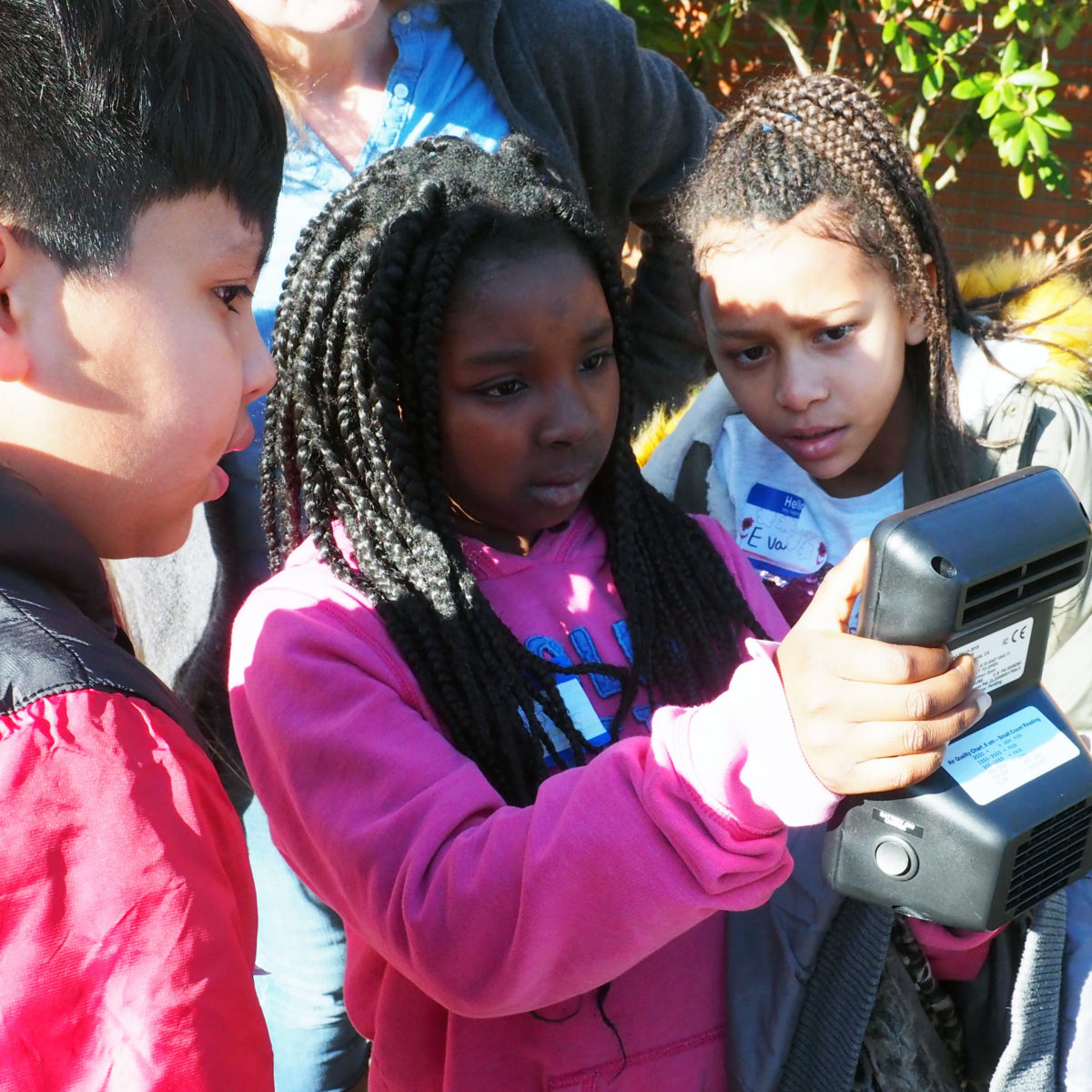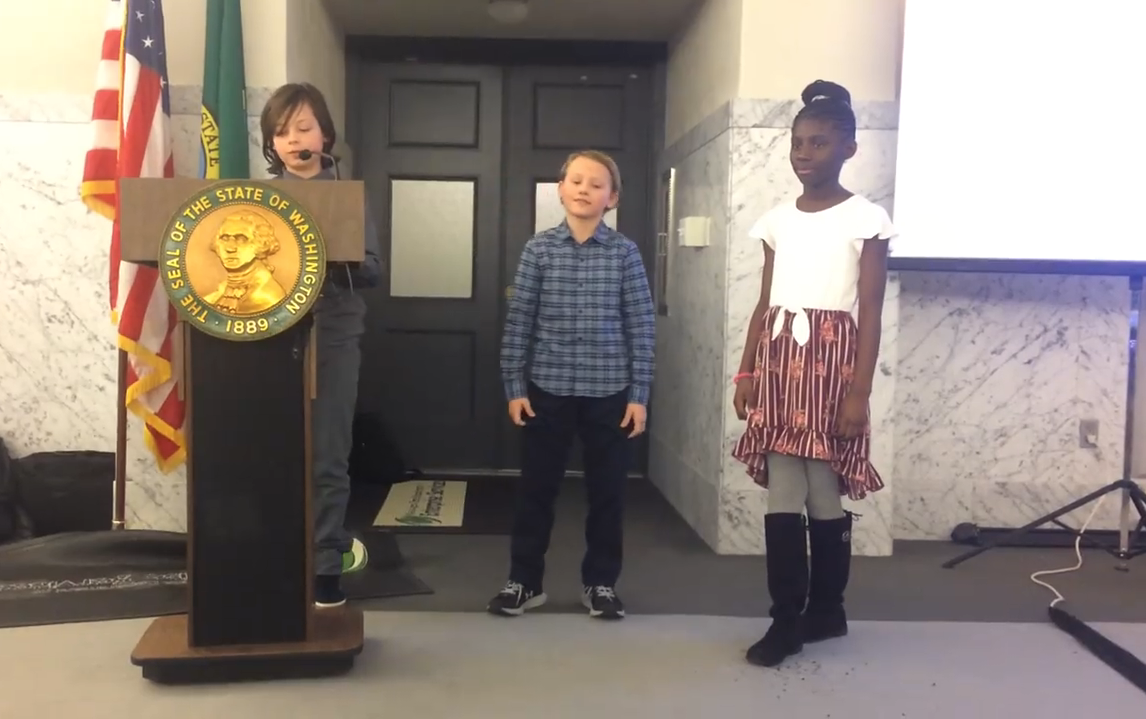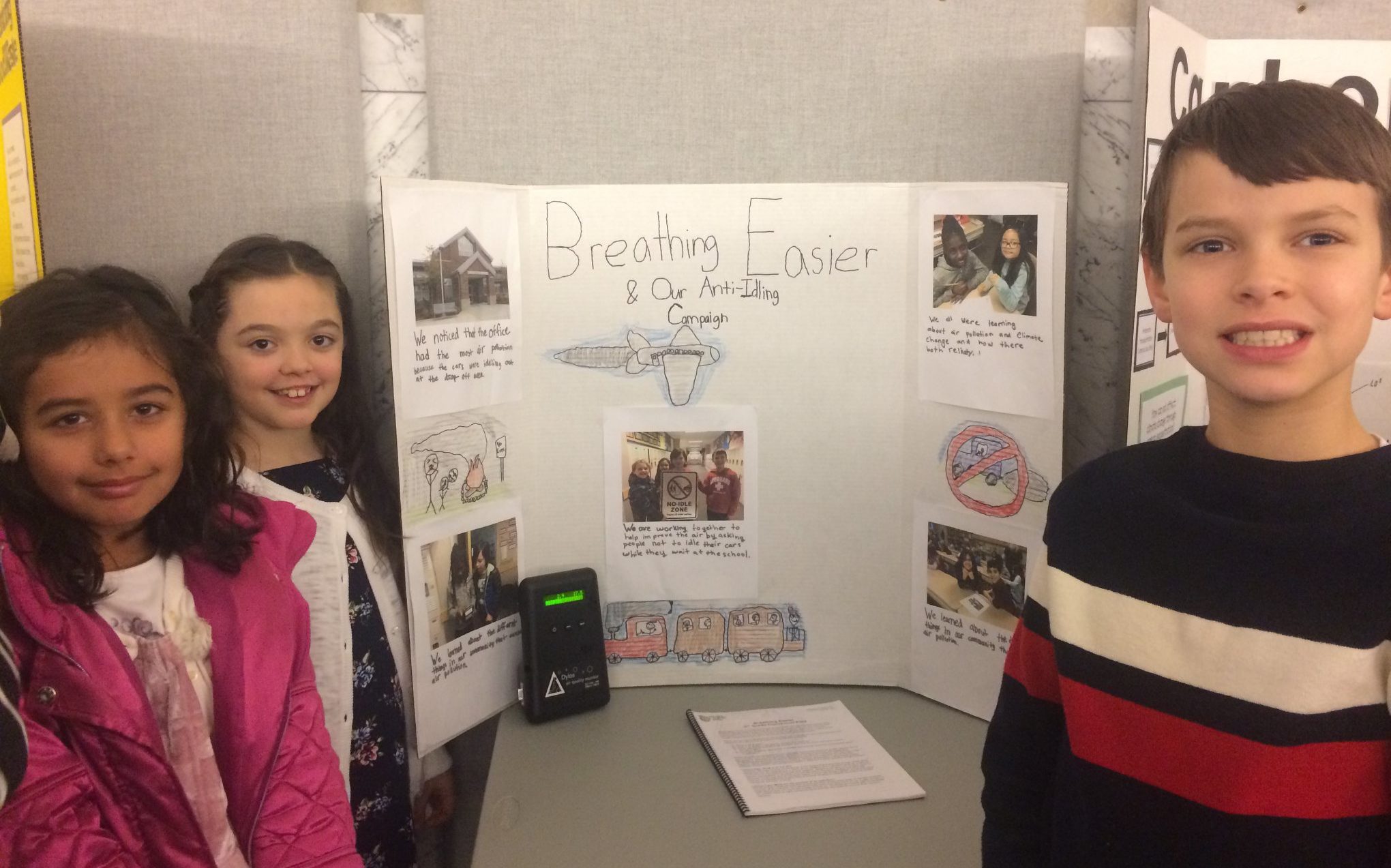
Concrete, hands-on learning activities help elementary school students understand how complex science concepts and social issues affect their own lives.
These projects also help kids understand their own power to make a difference. But too many schools, especially those in low income and communities of color, lack the resources they need to bring these opportunities to students. EarthGen’s Breathing Easier program helps to meet this need.
The Air We Breathe
Students at Lakeland Hills Elementary School in Auburn who piloted Breathing Easier, EarthGen’s new environmental justice program, proved how young people can be changemakers for a healthy environment. When the students discovered unhealthy air quality near their school’s front entrance, they launched an anti-idling campaign that took them all the way to the governor’s office.
“I believe that we have to learn the causes of the problem first and then take action to help our planet. I am excited to be a part of helping the environment.”
Seth, Lakeland Hills Elementary Student
Breathing Easier is a science unit for upper elementary students developed by EarthGen with support from Puget Sound Clean Air Agency. It teaches students about air quality and its importance for healthy communities, while addressing academic standards in science and connecting to issues of environmental justice. Students in Breathing Easier learn why some communities are disproportionately impacted by air pollution and how they can make a difference.
Like all of EarthGen’s environmental science units, Breathing Easier is a hands-on learning program with a local action component. Students use hand held monitors to measure air quality in their schools and the surrounding neighborhood. At Lakeland Hills, students concluded that one important source of pollution was parents’ cars idling in the pickup line. To take action, they developed an anti-idling campaign to improve air quality at their school.
No Idling Zone
With their teacher Alaura Keith, the students wrote a letter to parents in their community asking them to stop idling. They also installed “No-Idle Zone” signs along the pickup line outside of the school. Next, they took their recommendations all the way to Olympia; in 2018 six students traveled to the state Capitol to meet the governor and present their anti-idling campaign to his STEM Alliance. The students requested that the governor build on the policy that they implemented at Lakeland Hills and ban idling in front of all schools in Washington.


The Future is Clean Air
During the pandemic, EarthGen adapted Breathing Easier to be taught in the virtual environment with at-home action projects and began developing a bilingual version of the unit for use in summer programs across the state. Teachers from three school districts adopted the virtual unit in the 2020-21 school year, ensuring that their students could learn about clean air and environmental justice, even when school buildings were closed. Several more teachers received training that will allow them to implement Breathing Easier when their schools reopen in person. Despite the challenges presented by a global pandemic year, Breathing Easier is expanding to engage more students across Washington in learning and action for environmental justice.